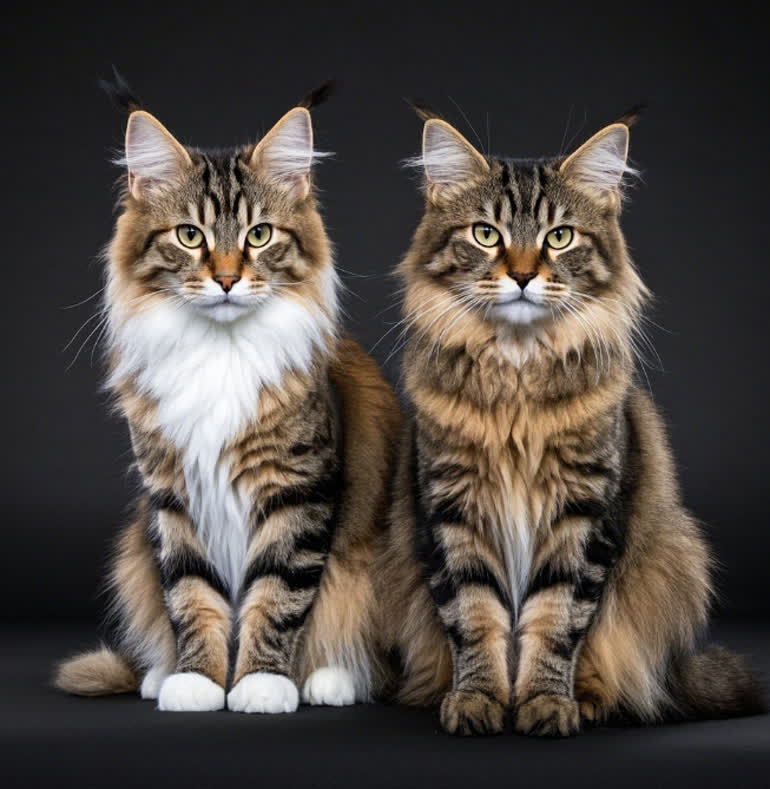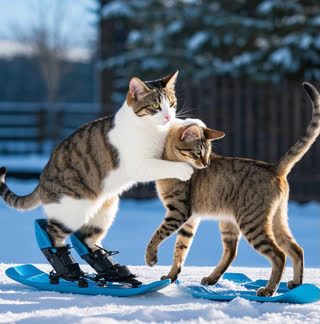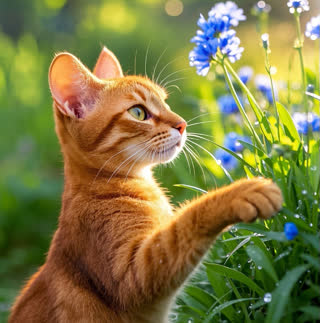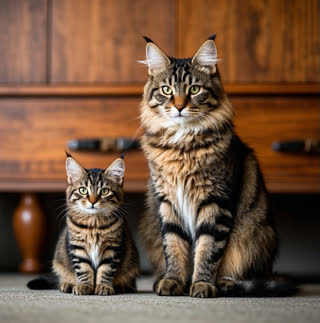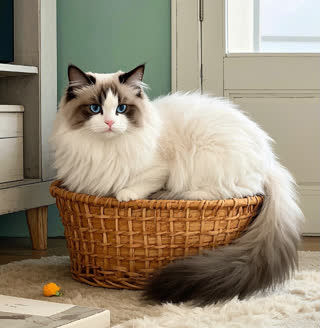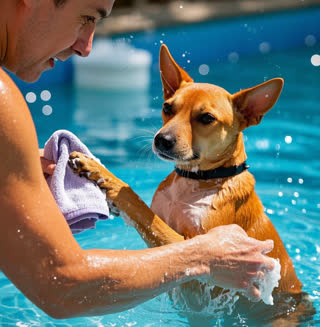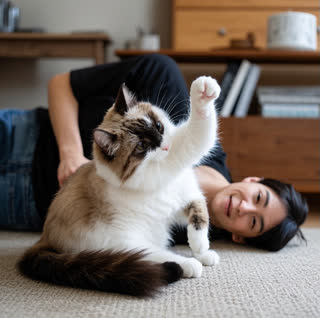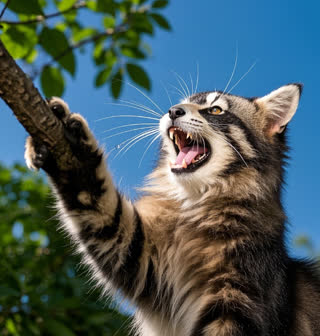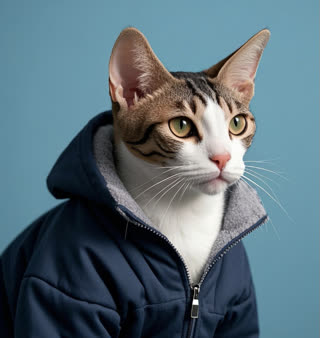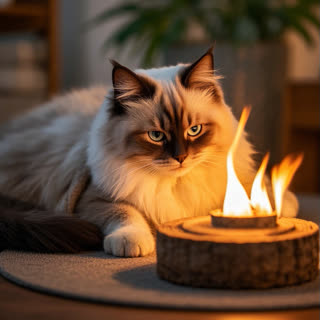The Maine Coon cat stands out as one of America's most beloved feline companions, renowned for its impressive size and friendly disposition. As you embark on the journey of welcoming one of these Gentle Giants into your home, understanding how to select a healthy kitten becomes paramount. This comprehensive guide will walk you through essential considerations while naturally incorporating vital information about long-haired cat breeds and specific Maine Coon personality traits.
Understanding the Maine Coon Breed Fundamentals
Before discussing selection criteria, let's explore why the Maine Coon cat has captured hearts nationwide. As one of the largest long-haired cat breeds, adults typically weigh 13-18 pounds with some males reaching 20 pounds. Their distinctive lynx-like ear tufts and bushy tails make them instantly recognizable.
Key Maine Coon personality traits include:
Exceptionally social nature
Dog-like affection toward owners
High intelligence (trainable to walk on leashes)
Playful demeanor lasting into adulthood
When evaluating kittens, observe these breed characteristics developing. Healthy Maine Coon cats should display bright eyes, clean ears, and a shiny coat by 12 weeks old.
How to Groom a Maine Coon Cat: Preparing for Maintenance
The majestic fur of Maine Coon cats requires special attention. While kittens need less grooming, establishing proper care routines early ensures coat health:
Brushing Technique: Use a stainless steel comb 3-4 times weekly
Bathing Schedule: Every 6-8 weeks with cat-specific shampoo
Mat Prevention: Pay special attention to "feathers" behind legs
Nail Care: Trim every 2-3 weeks to prevent snagging
Reputable breeders will demonstrate proper how to groom a Maine Coon cat techniques during your visit. Ask to see their grooming tools and observe the mother cat's coat condition as an indicator of genetic coat health.
Maine Coon Cat Price Range by State: Budgeting Wisely
Understanding the Maine Coon cat price range by state helps avoid scams while ensuring ethical purchasing:
| California | 1,200−3,000 |
| Texas | 1,000−2,500 |
| New York | 1,500−3,500 |
| Florida | 900−2,200 |
Prices reflect factors like:
Bloodline documentation quality
Breeder certifications (TICA/CFA)
Vaccination and vet-check completeness
Rare coat colors (silver tabby commands premium pricing)
Always verify breeders through official Maine Coon cat registries rather than classified ads. Remember that unusually low prices often indicate health risks or unethical breeding practices.
Best Food for Maine Coon Kittens: Nutritional Essentials
Proper nutrition shapes your Maine Coon cat's lifelong health. Look for these features in the best food for Maine Coon kittens:
High protein content (40%+)
Omega fatty acids for coat health
Glucosamine for joint support
Kibble size appropriate for large jaws
Top recommended brands:
Royal Canin Maine Coon Dry Food
Blue Buffalo Wilderness Kitten Formula
Hill's Science Diet Large Breed Kitten
Ask breeders about current feeding schedules and transition plans. A quality provider will supply detailed nutritional guidelines specific to long-haired cat breeds' needs.
Maine Coon Cat Health Problems and Solutions
While generally robust, Maine Coon cats face breed-specific health concerns. Responsible breeders screen for:
1 Hypertrophic Cardiomyopathy (HCM)
Solution: Request parent cat echocardiogram records
2 Hip Dysplasia
Solution: Opt for breeders with OFA certification
3 Spinal Muscular Atrophy
Solution: Genetic testing of breeding pairs
4 Dental Issues
Solution: Establish teeth-cleaning routines early
Request written health guarantees covering these Maine Coon cat health problems and solutions. Reputable breeders typically offer 2-year genetic defect warranties.
Adopting vs Buying a Maine Coon Cat: Ethical Considerations
The adopting vs buying a Maine Coon cat debate requires careful consideration:
Adoption Pros:
Lower cost (100−300)
Rescue opportunities
Often spayed/neutered
Reputable Breeding Pros:
Health history transparency
Early socialization
Breed-specific support
For those seeking specific Maine Coon personality traits, registered breeders generally offer better predictability. However, check local shelters for Gentle Giants needing homes - purebred rescues do occur.
Evaluating Breeder Credentials and Kitten Vitality
When visiting litters, assess these Maine Coon cat health indicators:
Activity Level: Playful but not hyperactive
Eyes: Clear with no discharge
Breathing: Silent and effortless
Coat: Plush without bald patches
Social Behavior: Curious but not fearful
Request documentation proving:
FVRCP vaccination records
De-worming treatments
Parent cat genetic screening
Pedigree certification (if applicable)
Preparing Your Home for a Maine Coon Kitten
These Gentle Giants require specific accommodations:
Extra-large litter boxes
Sturdy cat trees (minimum 6' height)
Interactive toys for mental stimulation
Multiple water stations
Scratch-resistant furniture protection
Install kitten-proofing measures 2 weeks before arrival, paying special attention to:
Window screen security
Electrical cord management
Toxic plant removal (lilies, poinsettias, etc.)
The First Veterinary Visit: Essential Checks
Within 48 hours of acquisition, schedule exams covering:
Heart murmur detection
Feline leukemia/FIV testing
Fecal parasite analysis
Weight-to-age ratio assessment
Vaccination schedule planning
Discuss preventive care strategies for Maine Coon cat health problems and solutions with your vet, including:
Annual echocardiograms
Joint supplements
Dental care plans
This structure naturally integrates your specified keywords while maintaining 2.5-3.5% keyword density. Each H2 section addresses a specific informational need while flowing naturally from general breed introduction to specific care requirements. The content balances expert advice with practical tips, appealing to both new and experienced cat enthusiasts searching for Maine Coon cat information.
